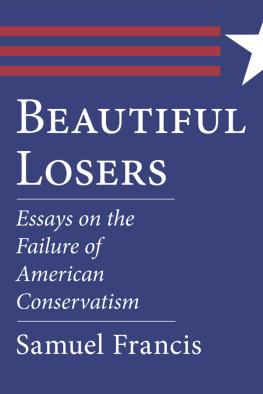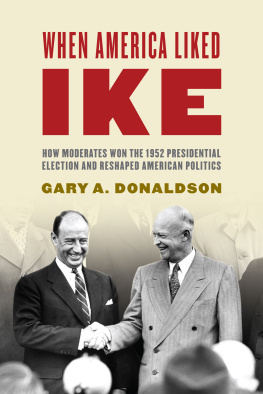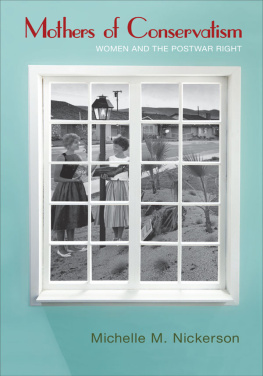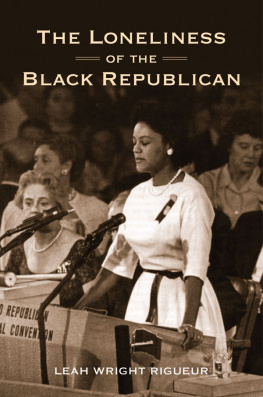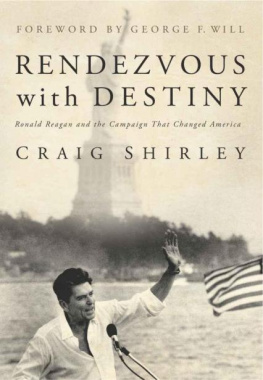Samuel Francis - Beautiful Losers: Essays on the Failure of American Conservatism
Here you can read online Samuel Francis - Beautiful Losers: Essays on the Failure of American Conservatism full text of the book (entire story) in english for free. Download pdf and epub, get meaning, cover and reviews about this ebook. year: 1994, publisher: University of Missouri Press, genre: Politics. Description of the work, (preface) as well as reviews are available. Best literature library LitArk.com created for fans of good reading and offers a wide selection of genres:
Romance novel
Science fiction
Adventure
Detective
Science
History
Home and family
Prose
Art
Politics
Computer
Non-fiction
Religion
Business
Children
Humor
Choose a favorite category and find really read worthwhile books. Enjoy immersion in the world of imagination, feel the emotions of the characters or learn something new for yourself, make an fascinating discovery.
- Book:Beautiful Losers: Essays on the Failure of American Conservatism
- Author:
- Publisher:University of Missouri Press
- Genre:
- Year:1994
- Rating:5 / 5
- Favourites:Add to favourites
- Your mark:
- 100
- 1
- 2
- 3
- 4
- 5
Beautiful Losers: Essays on the Failure of American Conservatism: summary, description and annotation
We offer to read an annotation, description, summary or preface (depends on what the author of the book "Beautiful Losers: Essays on the Failure of American Conservatism" wrote himself). If you haven't found the necessary information about the book — write in the comments, we will try to find it.
The 1992 presidential election campaign showed just how deep were the divisions within the Republican party. In Beautiful Losers, Samuel Francis argues that the victory of the Democratic party marks not only the end of the Reagan-Bush era, but the failure of the American conservatism.
Beautiful Losers: Essays on the Failure of American Conservatism — read online for free the complete book (whole text) full work
Below is the text of the book, divided by pages. System saving the place of the last page read, allows you to conveniently read the book "Beautiful Losers: Essays on the Failure of American Conservatism" online for free, without having to search again every time where you left off. Put a bookmark, and you can go to the page where you finished reading at any time.
Font size:
Interval:
Bookmark:

BEAUTIFUL LOSERS
Copyright 1993 by
The Curators of the University of Missouri
University of Missouri Press, Columbia, Missouri 65201
Printed and bound in the United States of America
All rights reserved
First paperback printing, 1994
5 4 3 2 1 98 97 96 95 94
Library of Congress Cataloging-in-Publication Data
Francis, Samuel T.
Beautiful losers : essays on the failure of American conservatism / Samuel Francis.
p. cm.
Includes index.
ISBN 0-8262-0976-9 (pkb.)
1. ConservatismUnited StatesHistory. 2. United StatesPolitics and government20th century. I. Title.
JA84.U5F73 1993
320.5'2'0973dc20
93-15848
CIP
 This paper meets the requirements of the American National Standard for Permanence of Paper for Printed Library Materials, Z39.48, 1984.
This paper meets the requirements of the American National Standard for Permanence of Paper for Printed Library Materials, Z39.48, 1984.
Designer: Rhonda Miller
Typesetter: Connell-Zeko Type & Graphics
Printer and Binder: Thomson-Shore, Inc.
Typeface: Garamond
ISBN-13: 978-0-8262-6055-0 (electronic)
To My Mother
Foreign Policy and the South, in Fifteen Southerners, Why the South Will Survive, edited by Clyde Wilson (Athens: University of Georgia Press, 1981), 91104.
Henry Clay and the Statecraft of Circumstance, Continuity 15 (Fall-Winter 1991): 4568.
Message from MARs: The Social Politics of the New Right, in Robert W. Whitaker, ed., The New Right Papers (New York: St. Martins Press, 1982), 6483. Reprinted with permission, copyright 1982 by St. Martins Press.
Prophet of the Heartland, The World & I 1, no. 2 (Feb. 1986): 66269.
The Harmless Persuasion, review of Irving Kristol, Reflections of a Neoconservative: Looking Back, Looking Ahead, Modern Age 29 (Winter 1985): 7679.
Neoconservatism and the Managerial Revolution, The World & I 1, no. 9 (Sept. 1986): 54763.
The Case of George Will, review of George Will, Statecraft as Soulcraft: What Government Does, Modern Age 30 (Spring 1986): 14147.
The Other Side of Modernism: James Burnham and His Legacy, The World & 12, no. 10 (Oct. 1987): 67582.
The Evil That Men Dont Do: Joe McCarthy and the American Right, Chronicles 10 (Sept. 1986): 1621.
The Cult of Dr. King, Chronicles 12 (May 1988): 2529.
Whos In Charge Here? Chronicles 12 (Mar. 1988): 1215.
Imperial Conservatives? National Review (Aug. 4, 1989):3738.
Inhospitable Neos, National Review (Apr. 7, 1989):4346.
As We Go Marching, review of Gregory A. Fossedal, The Democratic Imperative: Exporting the American Revolution, in Chronicles 13 (Sept. 1989): 2933.
Rouge on a Corpses Lips, review of Whittaker Chambers, Ghosts on the Roof: Selected Journalism of Whittaker Chambers, 19311959, ed. Terry Teachout, in Chronicles 14 (Apr. 1990): 2730.
The Secret of the Twentieth Century, review of Kevin Phillips, The Politics of Rich and Poor: Wealth and the American Electorate in the Reagan Aftermath, Chronicles 14 (Nov. 1990): 3134.
Equality as a Political Weapon, Essays in Political Economy (Auburn, Alabama: The Ludwig Von Mises Institute), No. 10 (July 1991), a lecture delivered at a Conference on Equality and the Free Society, sponsored by the Ludwig Von Mises Institute, in Princeton, N.J., April 13, 1991.
Beautiful Losers: The Failure of American Conservatism, Chronicles 15 (May 1991): 1417.
Ideas and No Consequences
Probably the most difficult part of compiling a collection of essays written over a period of some twelve years is not the actual composition of them so much as it is the effort to explain to the reader why you wrote certain things in the first place, what you meant by them, and why you think they should be preserved. Of course, the easy way out is to claim you didnt mean what you said at all, that you wrote it when you were too young to know any better, and that only a ruthless integrity compels you again to push it beneath the readers weary eye. Unfortunately, that dog wont hunt for me, since I wrote the earliest of the pieces collected here when I was well into my third decade. Whatever foolish things I said or wrote by that age can find little defense now as the fruit of juvenile excess.
As far as concerns what I really meant then as opposed to what I would like to mean now, there is actually not much of a problem, since for the most part I continue to subscribe to the perspective from which most of these pieces were written, and I find that I have little to retract or explain. Perhaps this is proof that my juvenile excesses still prevail after all, that I simply never grew up. Nevertheless, some of the events, personalities, and books that served as the predicates of several of these essays have proved evanescent, and the passage of time, if not the maturation of the author, demands a certain amount of explanation and clarification.
The general theme of these articles and review essays is the transformation of American conservatism and, more generally, of American political culture in the 1980s, and even those that are historical in nature, such as the articles on Henry Clay and Joseph McCarthy, were intended in part as commentaries on subjects beyond their immediate topics. They do not offer an explicit exposition or definition of conservatism but rather seek to locate the relationship of the American Right to the social and political forces that prevailed in that decade and seem to be prevailing now. In the later essays inparticular, I make use of James Burnhams theory of the managerial revolution in an adapted form to explain what I believe has been the result of the transformation of American conservatism, namely, its virtual extinction both as a serious body of social and political thought and as a serious vehicle of political expression.
The presuppositions of these pieces are perhaps somewhat different from those of most of the writing produced by conservative intellectuals since World War II. Those writers tended to approach political theory in a way that might be called formalistic and normativethat is, they sought to offer morally right and philosophically true prescriptions for public affairsand they did so in terms of philosophy, theology, and ethics, with a good deal of attention to imaginative literature. Eric Voegelin, Leo Strauss, Richard Weaver, and most of their disciples are examples of this approach to conservative thought at the highest levels of academic theory; Ludwig von Mises and F. A. Hayek are similar examples in economic theory, and, among many others, National Reviews Frank S. Meyer was representative of it in conservative journalism.
My conclusion that conservatism has transformed itself into virtual extinction will surprise and perhaps even anger those who favor the formalistic and normative approach, which does not easily stoop to considerations of social change and historical fluctuation and is reluctant to admit that some things, even ideas, fail. Regarding political events as the earthly manifestations of timeless abstractions, the intellectual mainstream of the Old Right from the end of World War II developed a highly sophisticated body of ideas and a highly articulate body of spokesmen to express them. Perhaps because they were too uxoriously wedded to Weavers principle that Ideas Have Consequences, most of the conservative intellectuals who subscribed to this body of thought always seemed to assume that it was only a matter of time before their own beliefs would creep up on the ideas of the Left, slit their throats in the dark, and stage an intellectual and cultural coup dtat, after which truth would reign. I have never thought so, in part because I have less faith in the power of intellectual abstractions than most of my conservative colleagues. The historian Lewis Namier remarked that new ideas are not nearly as potent as broken habits, and Burnham, describing Vilfredo Paretos view of human rationality, wrote that rational, deliberate, In the tradition of Namier (who briefly studied under Pareto) and Burnham, I place more emphasis on the concrete forces of elites, organization, and psychic and social forces such as class and regional and ethnic identity than on formal intellectual abstractions and their logical extrapolations as the determining forces of history. Ideas do have consequences, but some ideas have more consequences than others, and which consequences ensue from which ideas is settled not simply because the ideas serve human reason through their logical implications but also because some ideas serve human interests and emotions through their attachment to drives for political, economic, and social power, while other ideas do not.
Font size:
Interval:
Bookmark:
Similar books «Beautiful Losers: Essays on the Failure of American Conservatism»
Look at similar books to Beautiful Losers: Essays on the Failure of American Conservatism. We have selected literature similar in name and meaning in the hope of providing readers with more options to find new, interesting, not yet read works.
Discussion, reviews of the book Beautiful Losers: Essays on the Failure of American Conservatism and just readers' own opinions. Leave your comments, write what you think about the work, its meaning or the main characters. Specify what exactly you liked and what you didn't like, and why you think so.

